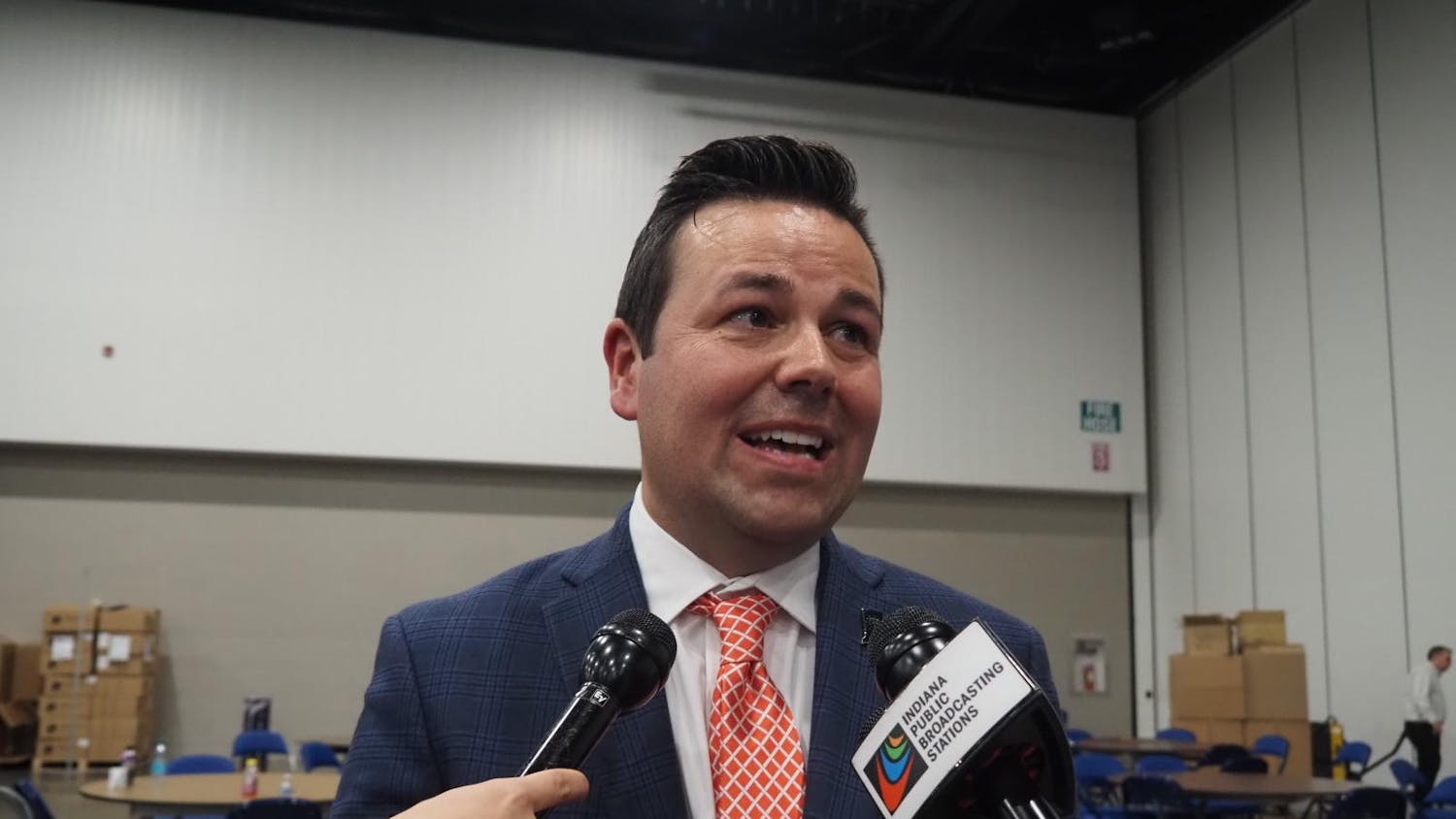Whether patrolling the dorms on foot or biking through campus, the IU Police Department makes its presence visible to the IU community as part of a law enforcement technique known as community policing.
Characteristics of community policing include the department’s foot and bike patrol and residential programs. Educating the school’s community in aspects such as women’s self-defense and alcohol awareness is also important.
The U.S. Department of Justice defines community policing as a philosophy that “promotes organizational strategies, which support the systematic use of partnerships and problem-solving techniques.” The techniques behind it have been in use for decades, but the concept did not receive its official title until the early 1990s, when two researchers at Michigan State established the term.
By that time, IUPD began experimenting with the idea and established its bike patrol on a trial run. Before then, some plainclothes officers would patrol campus on bikes, strictly to prevent bicycle theft.
IUPD Capt. Jerry Minger said there was an impact in how officers were able to observe campus. What was first established as a trial turned into a permanent fixture.
Sgt. Leslie Slone was one of the first-ever officers on bike patrol. She credits it with helping IUPD develop a rapport with members of the community.
“Having police officers on bicycles, in a community where (they) are a major source of transportation ... how cool is that?” Slone said. “‘Hey man, you ride a bike? I ride a bike.’ It immediately establishes some sort of a connection.”
Foot and bike patrolling gives officers advantages they would not have otherwise by squad car. IUPD has found members of the community are able to approach an officer patrolling on bike or foot as opposed to by car. In addition, those officers have access to places on campus they would not have otherwise by car, such as the administrative buildings located in the old campus.
In 2001, IUPD began a residential program, when they started housing two junior police officers in McNutt Quad. Over the course of time, incident occurrence at McNutt dropped 40 percent, said IUPD Lt. Greg Bulter.
The program continues today, as officers both reside in and help patrol their residence halls. They also aide resident assistants and form relationships with their dormmates. As of now, there are officers living in every dorm on campus with the exception of Collins Living-Learning Center and Ashton Quad.
IUPD is the only collegiate police department with its own academy. The IUPD cadet training program, led by Butler, emphasizes community policing in its curriculum. The first classes cadets take during training deal specifically with tolerance and community education. Many officers who worked in the IUPD have found employment with the Indianapolis Police Department and the FBI, among other places.
Community policing is not without its shortcomings, however. Criticism in community policing revolves around its “softer approach.”
“We want the community to trust and respect us, but we don’t want them to get too friendly,” Butler said. “What if somebody an officer were friends with did something wrong? It would be hard to be objective. You have to make sure there’s a line drawn somewhere.”
Advantages and disadvantages aside, community policing has proven effective in some instances.
Earlier this month, IUPD was alerted that cars parked on Seventh Street were being vandalized. Upon dispatch, nine officers stationed in the Central neighborhood and the Herman B Wells Library reported to the scene, apprehending the two men responsible.
Such success reinforces community policing. Whatever opinions the community may have of the IUPD, student safety is the department’s priority.
“We always do what is best for Indiana University. People who come here to get their degrees can do it safely,” Butler said. “We know the idea of what we are trying to accomplish, and it seems to be working.”
Community policing builds bonds between IUPD cadets, campus
Officers use bikes to patrol, live in dorms
Get stories like this in your inbox
Subscribe





